News
Brewing a New Identity
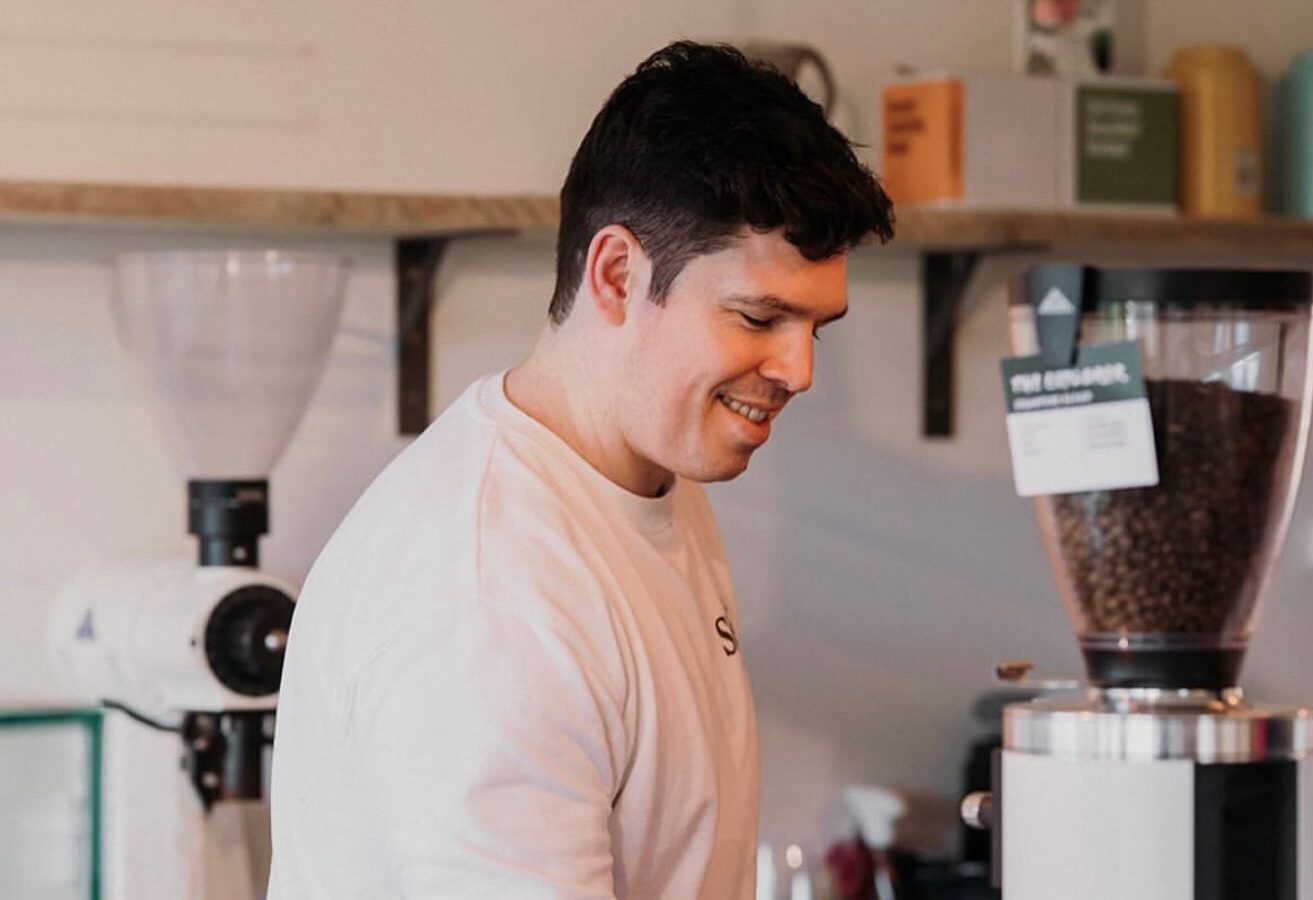
In the months leading up to my retirement, I remember listening to Brian O’Driscoll speak in a documentary about how sportspeople die twice. It was a scary concept. When I was at Munster and Connacht, we often had former players come in to speak with us about the transition but, to be honest, for most of my career that was all white noise. I was too busy thinking about the game at the weekend.
Things changed for me when I went into my final season knowing it would be my last. I spent a lot of time with Deirdre Lyons in those months. We talked about everything and anything, and with a bit of hindsight I’ve realised that she was getting to the root of what really makes me tick. You spend so much time immersed in rugby that it starts to feel like it’s all you know, so that whole process was a bit of a relief.
It’s rare to meet someone like Deirdre who can shine such a different light on your thinking. She encouraged me to try out a few different things, and that I should be working out what wasn’t for me as much as what might be. That perspective gave me a kind of quiet confidence to start stepping into new spaces and try new things without needing them to be perfect.
I also came to accept that my retirement didn’t have to be perfect either. Once I was mentally clued into it, I began to make the most of any opportunity to learn a bit more. Having largely ignored what they’d had to say, I began to note the little nuggets of wisdom former players were sharing with us. I remember one saying that there was no need to rush, and that the first step didn’t have to be the final one. That resonated strongly with me and put me at ease.
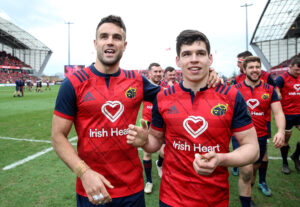
Mandatory Credit ©INPHO/Gary Carr
I appreciate that not every rugby player will have the luxury of a break post-retirement, but I took six months to just… pause. I wanted to spend time with my family. I wanted to think. I’d signed my first professional contract with Northampton Saints straight out of school and since then rugby had been the centre of everything. So, taking a step back was important for both me and those closest to me.
Now, don’t get me wrong… I didn’t spend all that time with my feet up. For the first couple of weeks I walked to the shop for the paper in the morning, had a coffee and put my feet up for the day. However, it didn’t take long before the lack of structure started to frustrate me. I missed having a routine and a clear sense of purpose. I missed the team environment and being part of something bigger than myself. Slowly, I started to join the dots.
One of the biggest things I noticed during that time was how much I missed the Irish coffee culture. My love of coffee first took root in the team rooms at Munster and Connacht where there was plenty of laughter and camaraderie amidst the hum of the coffee machine. My coffee palette was expanded when we travelled to away games. We couldn’t go to the pub so we made it our mission to find the best coffee spots in every town we visited. That was quite an education!
Having lived in Barna during our time in Galway, my wife Lucy and I had also been spoiled by a range of quality coffee shops and brunch spots in our neighbourhood, underpinned by a strong community vibe. Back home in the UK, I’d go out for brunch and it’d be a basic fry-up. Nothing wrong with that, but I found myself asking: where’s that little magic touch that turns a coffee or brunch into an experience?
The community aspect was very important to me. When I’d first arrived at Connacht, Andy Friend and I were very open with each other, and said that while Galway might not be our long-term home, we were going to invest fully into the club and into the people while we were in the area.
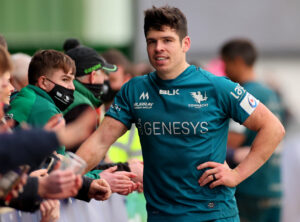
Mandatory Credit ©INPHO/James Crombie
Even then it was clear that something special was building, and we wanted to enhance that journey. I’m very proud to see what’s happening there of late – a new stadium, three British & Irish Lions and Stuart Lancaster coming on board. It’s the kind of excitement that the community we came to know so well deserves.
Having returned home to the north of England, Lucy and I would often talk about how we missed the community feeling of Galway. We joked about opening a coffee shop of our own and trying to recreate what we had in Barna. It was fanciful chat at first but the idea didn’t go away.
After a bit of back and forth, I decided I needed to get it out of my head on down on paper. Once I felt I had something worth sharing, I spoke to my dad, to my former teammate Matt Healy, and a few others. Their feedback gave me a little more belief. I remember Lucy and I looking at each other one day and saying, ‘this could actually work.’
I signed up for a few courses, and I did something that felt a bit bold. I approached the owner of the best coffee shop in Manchester, introduced myself, shared my idea, and asked if I could spend a couple of days shadowing their operation. Thankfully, they were open to it. I turned up with a notepad and pen, and did everything from taking the bins out to pouring the perfect coffee. It wasn’t glamorous but it was exactly what I needed.
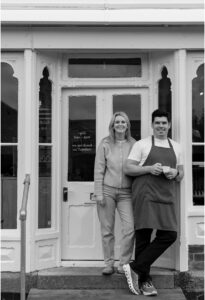
Those two days laid the groundwork for what eventually became The Sheds, which we opened just over a year ago in the old post office in Bunbury, a small village in Cheshire. Taking a deep dive into everything helped me see the business clearly and shape it with intention. I didn’t try to reinvent the wheel. Every decision we made was thoughtful, informed, and authentic. While I relied heavily on my instincts, I also grounded my choices in data, just as I had throughout my career.
There was also a lot of learning on the job. Even now, I’m constantly asking the team questions and encouraging honest feedback from our customers. Like my data insights, I think my open-minded approach to feedback comes from my rugby days. I learned so much from teammates, coaches, and from watching myself back critically. In Ireland, the rugby media are also smart and detailed. They’ll pick your game apart, and as a player, you either learn from it or let it break you. Not many people will be used to that but I do think there is a lot to gain from that honesty.
As well as open communication, I’ve taken many things with me from my rugby career. I have a good sense of leadership, and I understand the importance of a good team ethic. I have good values and I am always open to learning. I wasn’t the most talented athlete but I was prepared to work hard and push my body to places it didn’t want to go.
All that being said, it’s fair to say that I’ve parked my rugby career. I don’t cling to it. I retired relatively young but I felt at peace with that decision because I was ready and excited for something new. From a personal perspective, I’d been away from home for over a decade. Some people asked if I ever thought about getting an opportunity abroad, and I’d laugh and say, “I’ve already been abroad for ten years.”
Did retirement seem like a death as O’Driscoll mentioned? It certainly wasn’t easy but being able to acknowledge that it was going to be a difficult process was helpful. By speaking openly about it with my family and people like Deirdre [Lyons], I’d like to think I was somewhat prepared for it – and so were they.
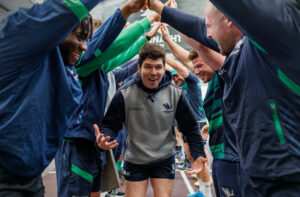
Mandatory Credit ©INPHO/James Crombie
For instance, during Christmas of my last season I sat down with Lucy and we started to plan for the next stage of our lives. We began to get really excited about it and that mindset shift was huge. Instead of mourning what we were losing, we looked forward to a new beginning for our family.
The Sheds has become a massive part of that exciting new phase, and continues to be. We have goals to grow and expand but I’m not rushing it. What’s the point? For me, The Sheds isn’t just a coffee shop. It’s a community. A place with high-end offerings that’s accessible, welcoming, and grounded.
Staying grounded should be an important value for any professional rugby player. It’s easy to get lost in all the opportunities the game brings, and for a while I was no different. In my head, the post-career advice didn’t apply to me because I had a full and long rugby career ahead of me.
I sometimes think back to that young person in those workshops, and I think if I could speak to him – or any young player – I’d say this: get curious about life outside rugby. It won’t hurt your game. If anything, it’ll make you a better person. That curiosity is where The Sheds was born. And that mindset is what carries me into my future.
Back to NewsLatest Posts

Highlights: January 2026

A Diplomatic Move

















